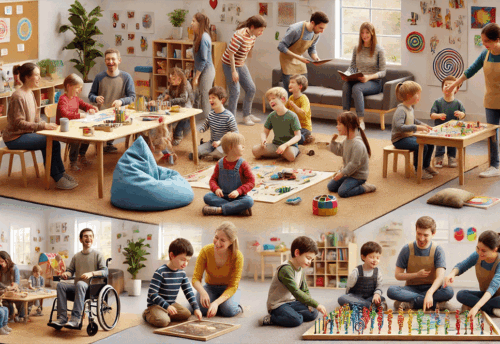
Practical Tips for UK Families
Creating a Routine for Your Child: Practical Tips for UK Families
Establishing a daily routine for your child provides structure, reduces stress, and supports their emotional and developmental well-being. For UK families, a thoughtfully designed routine can address a variety of needs, from academic tasks to play and relaxation, fostering a balanced lifestyle. Here’s how to create and implement a routine that works for your family.
1. Understand Your Child’s Needs
Every child is unique, so consider their preferences, strengths, and challenges when creating a routine.
- Assess Energy Levels: Identify when your child is most alert for focused tasks like homework and when they need downtime.
- Consider Sensory Needs: Factor in sensory-friendly activities or breaks if your child is sensitive to noise, light, or textures.
2. Build a Visual Schedule
Visual schedules are particularly effective for children, offering a clear and predictable plan for the day.
- Use Pictures or Icons: Represent activities with images for younger children or non-readers.
- Include Time Blocks: Assign specific times for activities to create consistency.
- Make It Interactive: Use magnets, Velcro, or erasable boards to allow flexibility and involvement.
3. Balance Structure with Flexibility
While routines provide stability, allow room for adjustments.
- Set Priorities: Focus on key activities like meals, schoolwork, and bedtime, and adapt the rest as needed.
- Incorporate Free Time: Include unstructured periods for creativity or independent play.
4. Incorporate Variety
A diverse routine keeps your child engaged and prevents monotony.
- Mix Physical and Quiet Activities: Alternate between active tasks like outdoor play and calm activities like reading or puzzles.
- Rotate Interests: Introduce new games, books, or hobbies to keep things fresh and exciting.
5. Establish Morning and Evening Routines
Start and end the day with consistency to set a positive tone and encourage restful sleep.
- Morning Tips:
- Start with calming activities to ease into the day.
- Use checklists for tasks like brushing teeth and getting dressed.
- Evening Tips:
- Wind down with relaxing rituals like storytime or quiet music.
- Avoid screens at least an hour before bed.
6. Involve Your Child
Engage your child in planning their routine to build ownership and enthusiasm.
- Offer Choices: Let them pick between two activities or decide the order of tasks.
- Encourage Participation: Involve them in setting up their visual schedule or checking off completed tasks.
7. Address Transitions
Help your child move smoothly from one activity to another.
- Use Cues: Provide verbal or visual reminders, like “Five more minutes of play before dinner.”
- Practice Patience: Allow extra time for transitions, especially for activities your child finds challenging.
8. Include Self-Care and Well-Being
Teach the importance of taking care of the body and mind.
- Schedule Breaks: Include regular pauses for snacks, hydration, or relaxation.
- Encourage Physical Activity: Activities like yoga, biking, or a simple walk boost energy and mood.
9. Adapt for Special Occasions
Flexibility is key when unexpected events arise.
- Prepare for Changes: Use social stories or discussions to explain deviations from the routine.
- Keep Core Elements: Maintain essential parts like meal and sleep times for stability.
10. Monitor and Adjust
Review the routine periodically to ensure it continues to meet your child’s needs.
- Observe Reactions: Note how your child responds to the routine and make tweaks if necessary.
- Gather Feedback: Older children can provide insights on what’s working or what they’d like to change.
Benefits of a Routine
- Reduces Anxiety: Predictability helps children feel secure and in control.
- Supports Development: Structured time for learning, play, and rest encourages well-rounded growth.
- Strengthens Family Bonding: Shared activities create opportunities for connection and communication.
Creating a routine tailored to your child’s needs empowers them to navigate daily life with confidence and joy. For UK families, this proactive approach not only supports individual growth but also fosters a harmonious and balanced family environment.





Leave a Reply